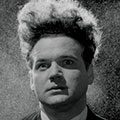The feature was one aspect of Room With a View that I was particularly excited to work on, as it’s closely related to the sort of narrative documentary podcast content that I love listening to. Our subject matter (cultural attitudes towards body hair) was decided relatively quickly, and I felt that as a topic it gave us a lot of pathways to explore and follow, which we could narrow down as we further developed the idea. We discussed a couple of potential styles/tones we could employ, from the more academic current-affairs style news reporting to something more atmospheric and esoteric, and the direction we would eventually go with would depend on the supporting material we could find.
Roles were divided up into pre-production and interviewing (Chloe and Rebecca) and vox-pops, editing and post-production (Hannah, Georgia and myself), with everyone in the group responsible for researching the topic and finding potential sources of archival material and found audio that we could use. We did some preliminary research to inform the interviews, but I tried to be careful not to spend too much time on scripting or recording material that we might not end up even using. This ended up being a good decision, but more on that later.
Chloe and Rebecca recorded our main interviews — one with a beauty therapist, and four with young people who have had personal experience with discrimination or societal pressure about their body hair. They were all pretty interesting and each could have easily been used in its own piece of radio, but we quickly identified that three of the interviews in particular (Lys, Tom and Julia) traversed some common ground and would lend themselves well to being edited together. One of the style options we discussed in our first meetings about the feature was potentially not having any narration at all and instead letting the interviews speak for themselves, which we identified as a viable option if we used Lys, Tom and Julia’s interviews. So we made the decision to cut the beauty therapist and the fourth interviewee entirely, and work only with the three we liked most.
One of the things I’m most happy about with this project is that we followed our material where it lead us. We could have easily come up with a pre-conceived notion of what our piece would sound like, and then tried to find material that supported that notion, but it could have sounded contrived or been difficult to shape the material to fit what we already had in our heads. Instead, we first listened to our interviews and then extracted the most interesting parts and used those to inform the overall tone and style, which I think has ended up with a much stronger final result. As a bonus, this meant that we didn’t spend too much time writing scripts or narration that ended up not being used. (Rebecca decided to go off and put together some narration on her own anyway, which will help her practice writing for radio.)
The finished piece has a very personal, intimate feeling to it, which is very much driven by the voices of our three main interviews. We didn’t use any archival or found audio clips (other than the vox-pops we recorded, which open the piece), but we made the conscious decision not to include such clips because they would have felt incongruous with the content of our interviews. Hopefully the vox-pops, inter-cutting of the interviews and the music we used all combine to give the piece an interesting texture that will keep listeners engaged.
Finding the perfect music to accompany our piece was challenging, as the subject matter is serious and deeply personal, but we didn’t want to use music that was too dark or sombre, or that was too emotionally prescriptive. We downloaded about 15 different free music tracks by Kevin MacLeod, and seriously considered using three or four of them, before we came across the piece that we ultimately ended up using. I think this speaks to the importance of continuing to search until you find the exact thing you’re looking for. (And we’ll have to remember to credit Kevin MacLeod on-air and on the RRR program page when we play the piece on air, to comply with Kevin’s licensing requirements.)
Of all the projects I’ve worked on during my media degree, this feature might be one of my absolute favourites. The editing process was particularly rewarding, as Georgia and I sat in an edit suite for hours cutting the entire piece together, which was a surprisingly positive and collaborative experience. I think it helped that I really respect Georgia’s talent for audio storytelling, so I was able to sit back and learn a lot from her. Previously, I’ve found editing by myself on my laptop to be a long and frustrating process, but having someone else there to bounce ideas off (and to keep me productive) was really valuable.
I’m excited to play the finished piece on RRR during our second show.
Learnings:
- Let your material dictate the tone and style of your work, not the other way around
- Vox pops are a cheap and easy way to get good content
- Editing with a partner offers benefits and leads to better results
- If you haven’t found the perfect piece of music, keep looking (or make it yourself)
